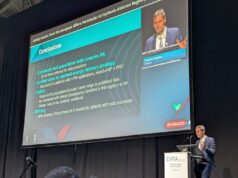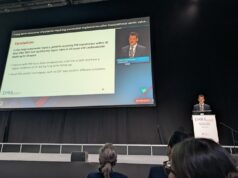Medtronic has announced the first implants in a clinical trial that will compare patient and healthcare system outcomes – including patient mortality and hospitalisations – in heart failure patients who have cardiac resynchronisation therapy (CRT) devices with the AdaptivCRT feature enabled versus patients receiving standard CRT. The AdaptResponse trial will assess the superiority of the AdaptivCRT algorithm, which preserves normal heart rhythms and automatically adjusts to patients’ needs to customise therapy; it is expected to be the largest trial of CRT to date, enrolling approximately 3,000 patients worldwide.
The primary endpoint of the AdaptResponse trial is a combination of all-cause mortality and the rate of medical intervention for worsening heart failure (decompensation). The trial also will examine the incidence of atrial fibrillation (AF) in enrolled patients; other secondary endpoints will assess patient quality of life measures as well as cost-effectiveness of CRT devices with the AdaptivCRT feature relative to standard CRT. Patients will receive a CRT-pacemaker or CRT-defibrillator equipped with the AdaptivCRT algorithm, and will be randomised 1:1 to either treatment (aCRT ON) or control (aCRT OFF) groups. Patients will be followed at three and six months after randomisation, and then every six months until trial closure.
Patients will be enrolled at up to 200 centres in Europe, Latin America, the Middle East, Australia, Canada, India, Japan, South Korea, Taiwan and the USA. The first implants in the trial were performed by Mark Castellani at Sparrow Hospital in Lansing, USA, and by Edward J Schloss at The Christ Hospital in Cincinnati, USA. Bruce Wilkoff, director of Cardiac Pacing and Tachyarrhythmia Devices at the Cleveland Clinic, is chair of the AdaptResponse trial’s steering committee.
The AdaptivCRT algorithm is the first significant advance to improve patient response rates to CRT since the advent of the therapy more than 10 years ago. The benefits of the algorithm were demonstrated in the Adaptive CRT trial, a prospective, multicentre, randomised, double-blind clinical trial. Key findings from the original trial, sub-analyses and economic models recently presented at Heart Rhythm 2014 and Cardiostim 2014 showed:
- For patients with normal AV conduction, AdaptivCRT showed an increase in CRT response rate of 12% at six months
- Patients with AdaptivCRT demonstrated a 21% reduction in heart failure hospitalisations as compared to historical CRT trials
- Patients with the AdaptivCRT technology demonstrated a 46% reduced risk of AF, and a 61% lower risk of AF-related problems
· AdaptivCRT demonstrated a reduction in 30-day hospital readmissions for heart failure of 47%












